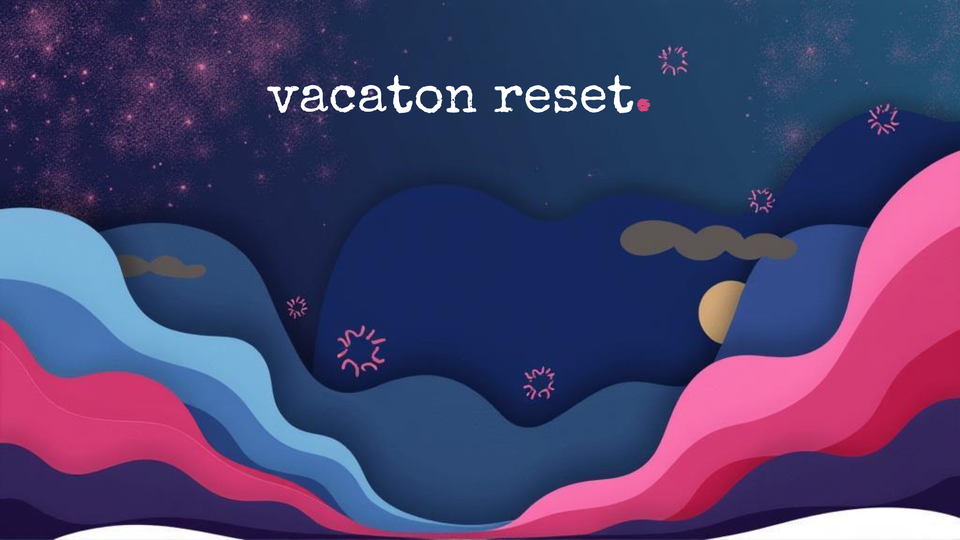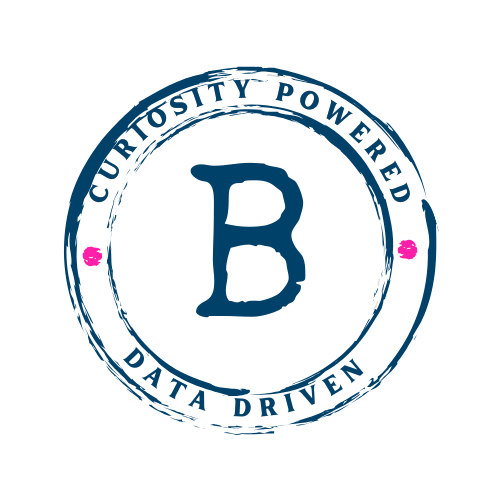The Night Before: Why I’m Glad I Took Time Off (and Why I’ll Keep Harassing You to Do the Same)

Tomorrow I go back to work. The inbox is waiting, the calendar is already full, and the rhythm of regular life is about to restart.
And tonight, sitting here at the edge of vacation and the start of “real life,” I’m reminded why I push so hard for my team to take their time off.
Because I needed mine.
I’m notorious for it: constantly nudging my staff to schedule their vacations. I’ve even been known to send messages like, “Use your days. I’m serious.” They laugh, but I mean it.
Now, after stepping away myself, I’m doubling down on the message. The difference between how I felt a week ago and how I feel tonight is startling and instructive.
Before: The Subtle Creep of Narrow Vision
Before vacation, I wasn’t burned out exactly. I was fine. Functioning. Productive. But everything felt heavier than it should.
That’s the sneaky thing about fatigue. It doesn’t announce itself. It accumulates quietly. Bit by bit, your field of vision narrows. You start mistaking urgency for importance.
Then you finally stop. You rest. And the fog lifts.
During: Distance Changes the Data
Here’s what surprised me most about this break: the way distance changes the quality of your thinking.
Somewhere between the second nap and finishing reading my second book, I realized problems I’d been wrestling with weren’t as complicated as they’d felt. The work didn’t change. My perception did.
Neuroscience gives us a good explanation. When we’re focused on tasks, one part of the brain dominates: the executive control network. When we step away, the default mode network activates. That’s the system linked to creativity, big-picture thinking, and insight.
In other words, your brain literally needs downtime to see patterns.
So when I tell my team that rest isn’t indulgent, it’s strategic, I’m not being poetic. It’s data-backed. NeuroLeadership Institute
The Energy Shift
I didn’t realize how much of my daily “energy” was just caffeine and calendar management until I felt the real thing again. By day four, I was sleeping through the night, waking up curious, and noticing small details, colors, ideas, conversations, that I’d been too tired to take in before.
That curiosity is fuel. It’s what leadership runs on. Without it, we default to old answers and safe bets. With it, we’re willing to explore, test, and change course early.
A meta-analysis of 22 studies found that micro breaks (even under ten minutes) significantly improve energy and reduce fatigue throughout the day. Multiply that by a full vacation, and it’s clear why perspective and creativity bounce back. PMC Research, 2022
Rest as Feedback
I used to think of time off as recovery. Now I see it differently.
Rest is feedback.
It tells you what truly energizes you, what drains you, and which parts of your work spark curiosity versus duty. If you pay attention, it’s some of the best data you’ll ever collect about your leadership.
Midway through my time off, I noticed my mind kept wandering back to one specific project, something I hadn’t thought about in weeks but suddenly felt excited to return to. That’s a clue.
That’s the kind of insight no productivity tool can give you.
Coming Back Different
So here I am, the night before re-entry, looking at my calendar with a different kind of clarity.
Some things that used to feel urgent don’t anymore. Some meetings I’m questioning whether they even need to exist. And some ideas I thought were too ambitious suddenly feel completely doable.
That’s the reset in action.
I know the pace of work will pick up again. The trick is to hold onto this wider lens for as long as possible.
The Leadership Lesson
We treat rest like a luxury, something we’ll earn after the next big push. But every piece of research on burnout, decision fatigue, and cognitive performance says the opposite: rest is a performance tool.
Microsoft’s brainwave research found that employees who took short breaks between meetings showed lower stress and higher engagement than those who powered through. Microsoft WorkLab, 2021
Other studies show that chronic overwork physically changes the brain, reducing gray matter in regions tied to decision-making and emotional regulation. Time, 2024
So when leaders skip rest, they’re not just tired. They’re impaired.
That’s why I’ll keep being that annoying boss who insists everyone uses their time off. Because when leaders reset, teams thrive.
A Challenge for the Week Ahead
As I head back tomorrow, here’s the question I’m asking myself, and maybe you can ask it too:
What’s one small reset you can build into the work week to keep this perspective alive?
It doesn’t have to be a grand gesture. It might be a real lunch break, a no-meeting Friday afternoon, or an hour a week to think instead of react.
The goal isn’t to escape work. It’s to come back able to see it clearly.
So yes, I’ll be back in my inbox tomorrow, caffeinated and ready. But this time, I’ll remember what I learned in the quiet:
Clarity doesn’t come from grinding harder.
It comes from giving yourself enough space to see.

Comments ()